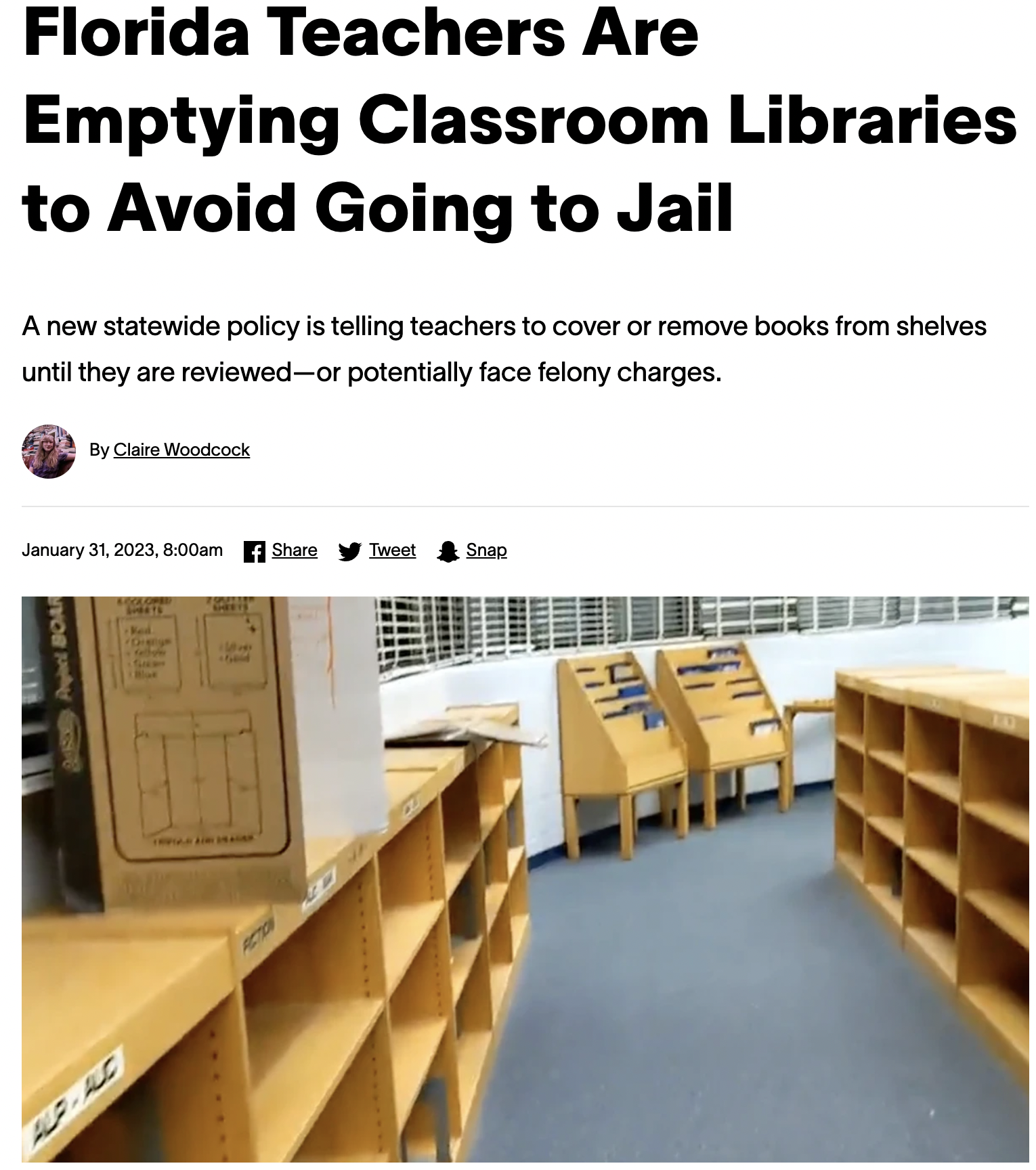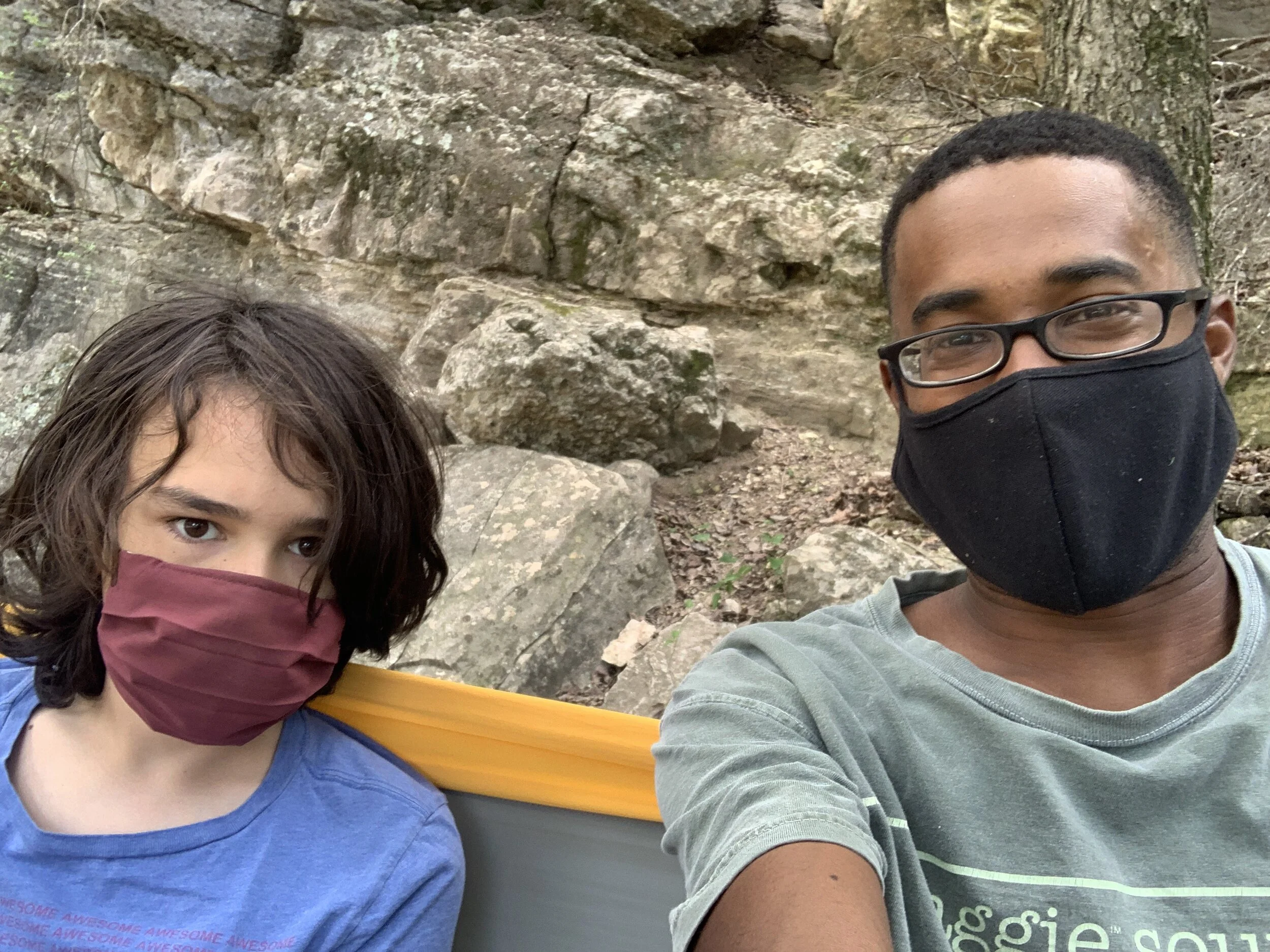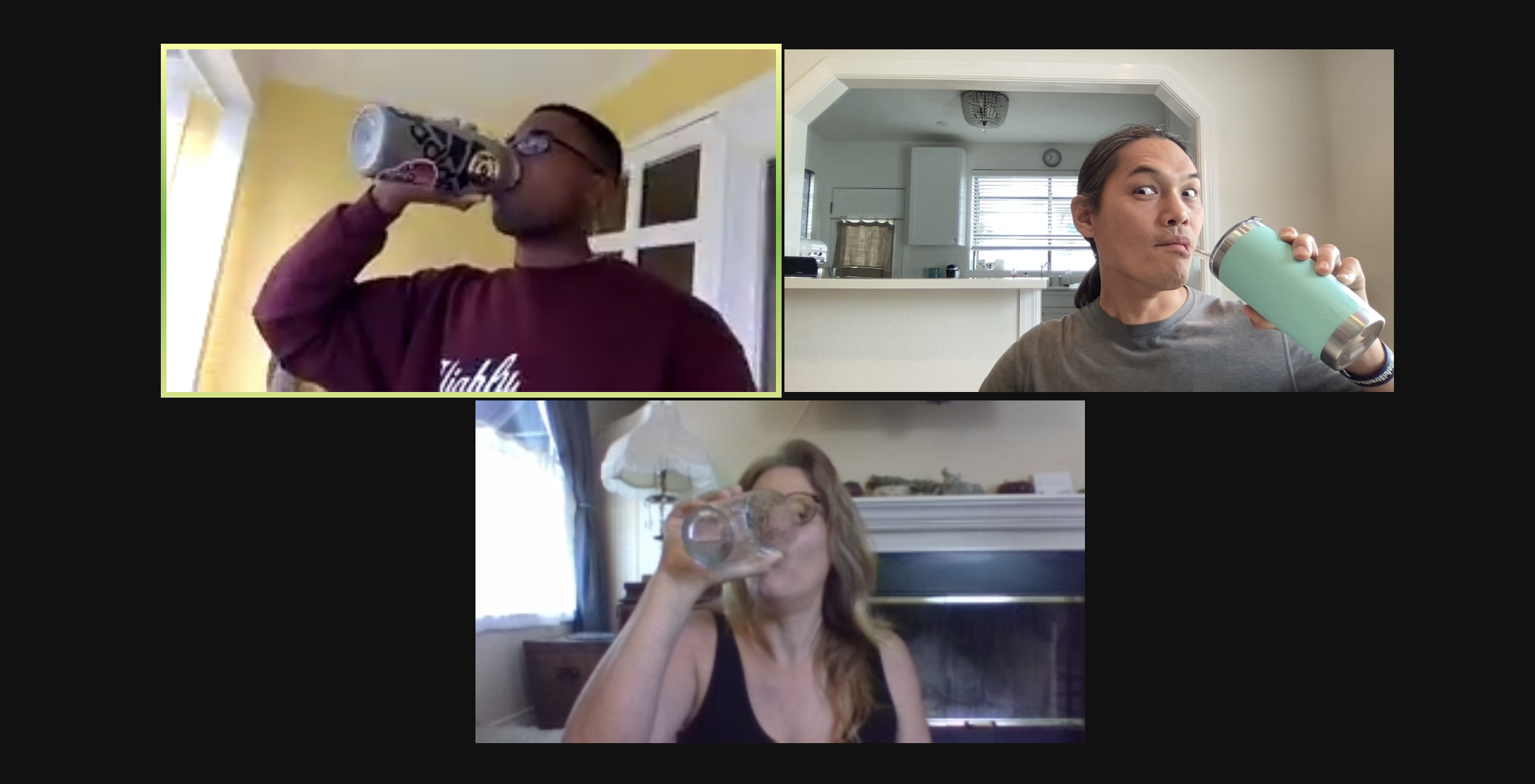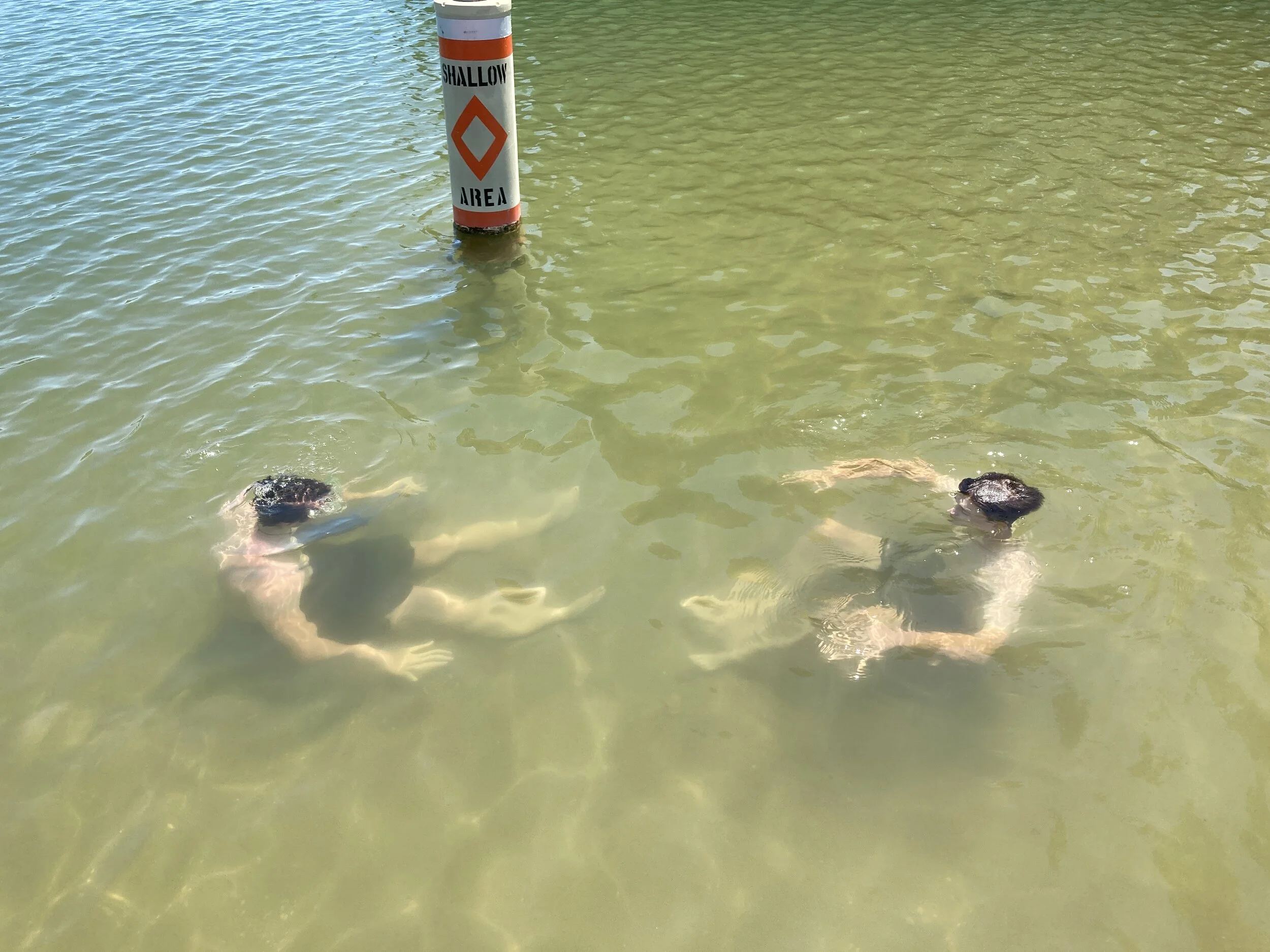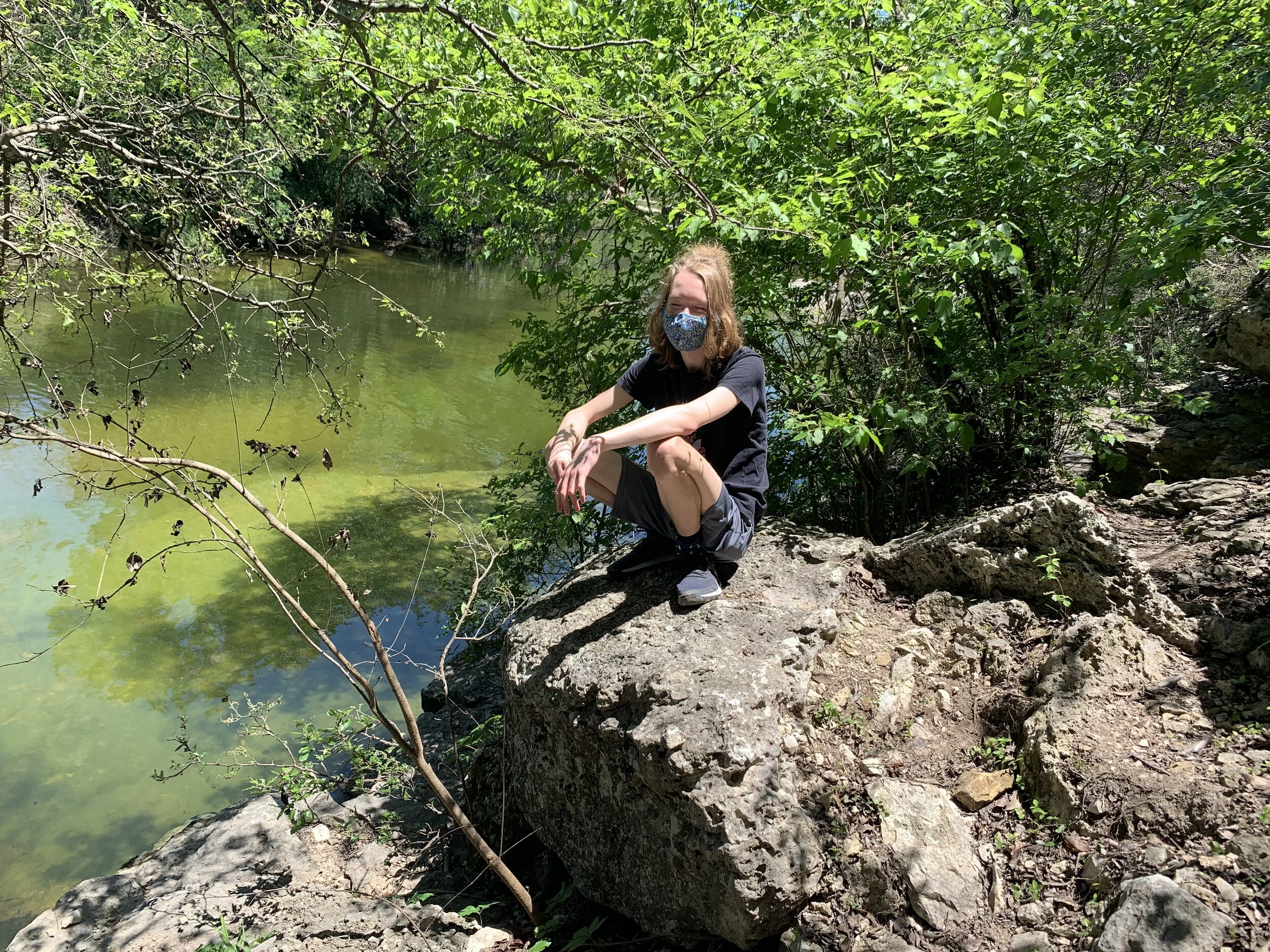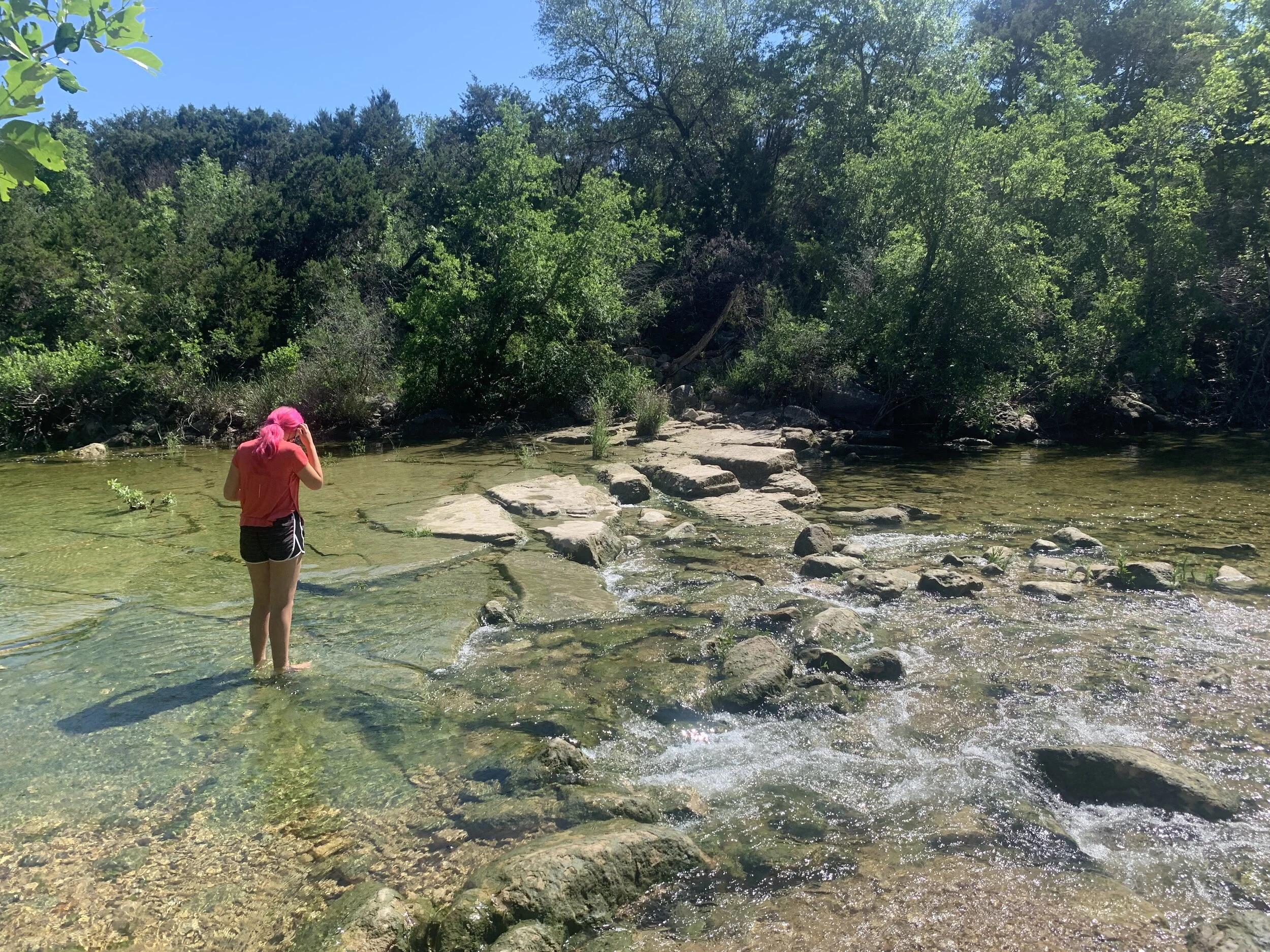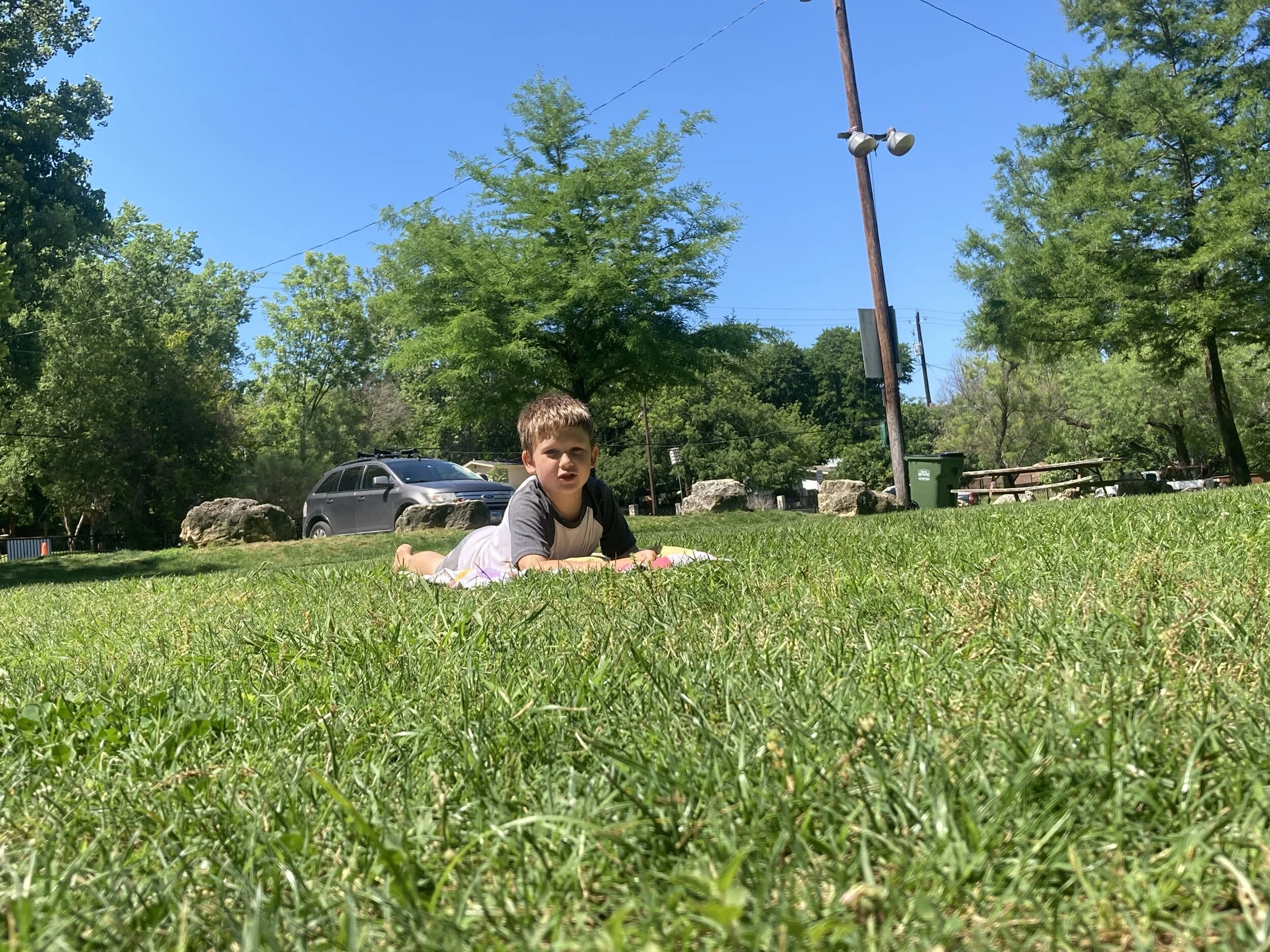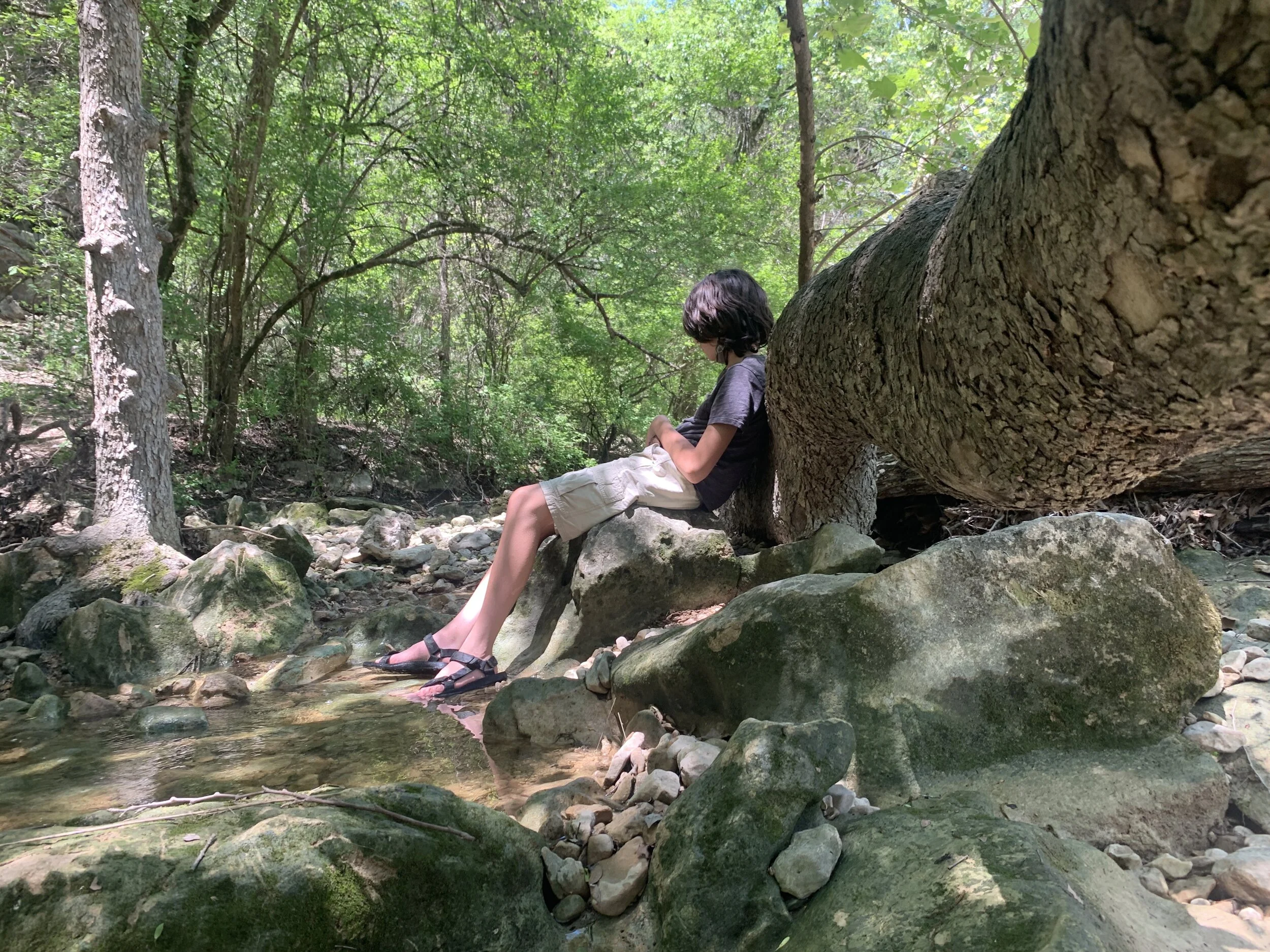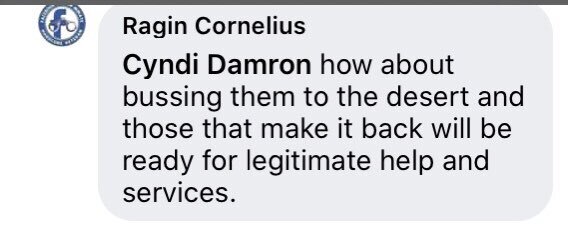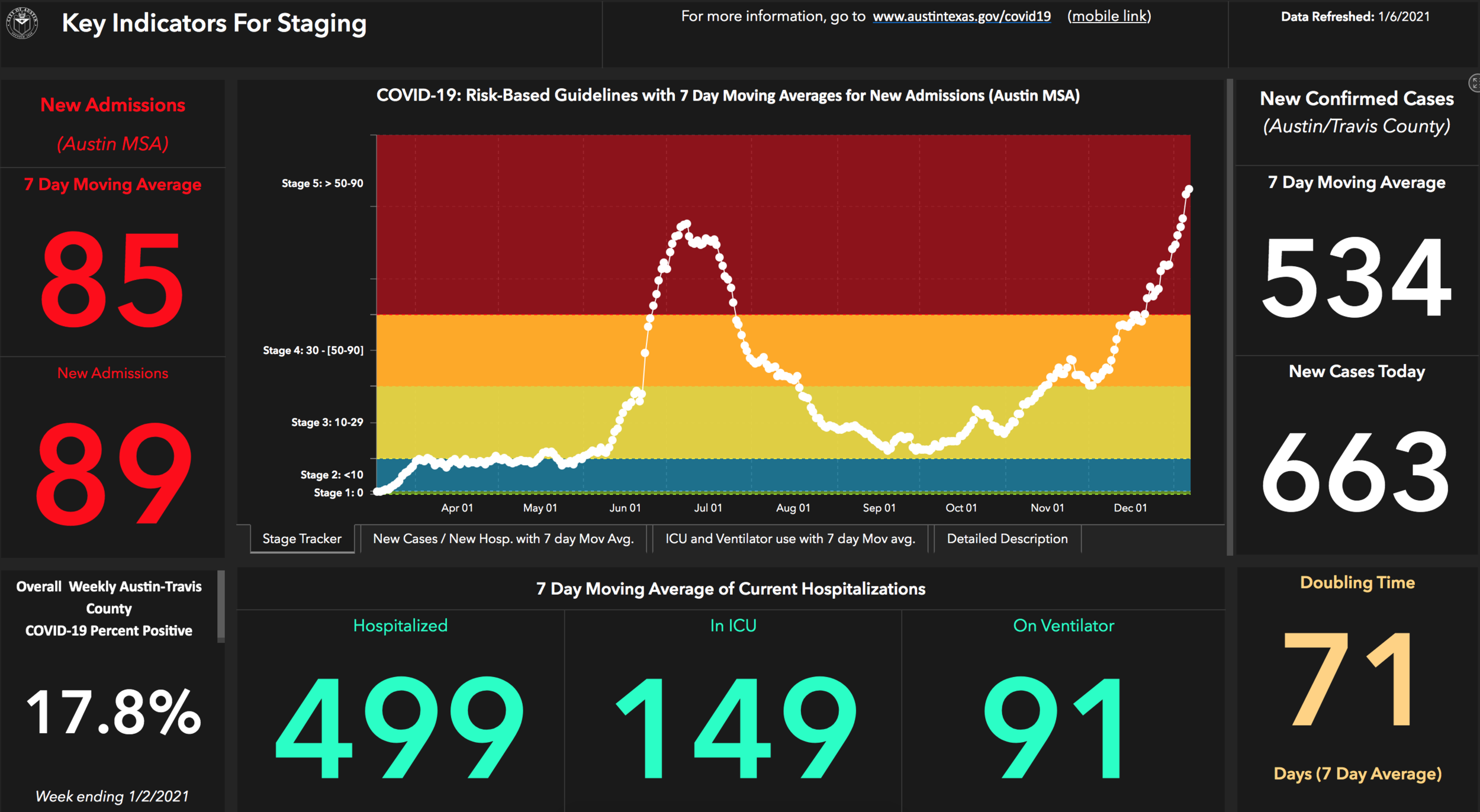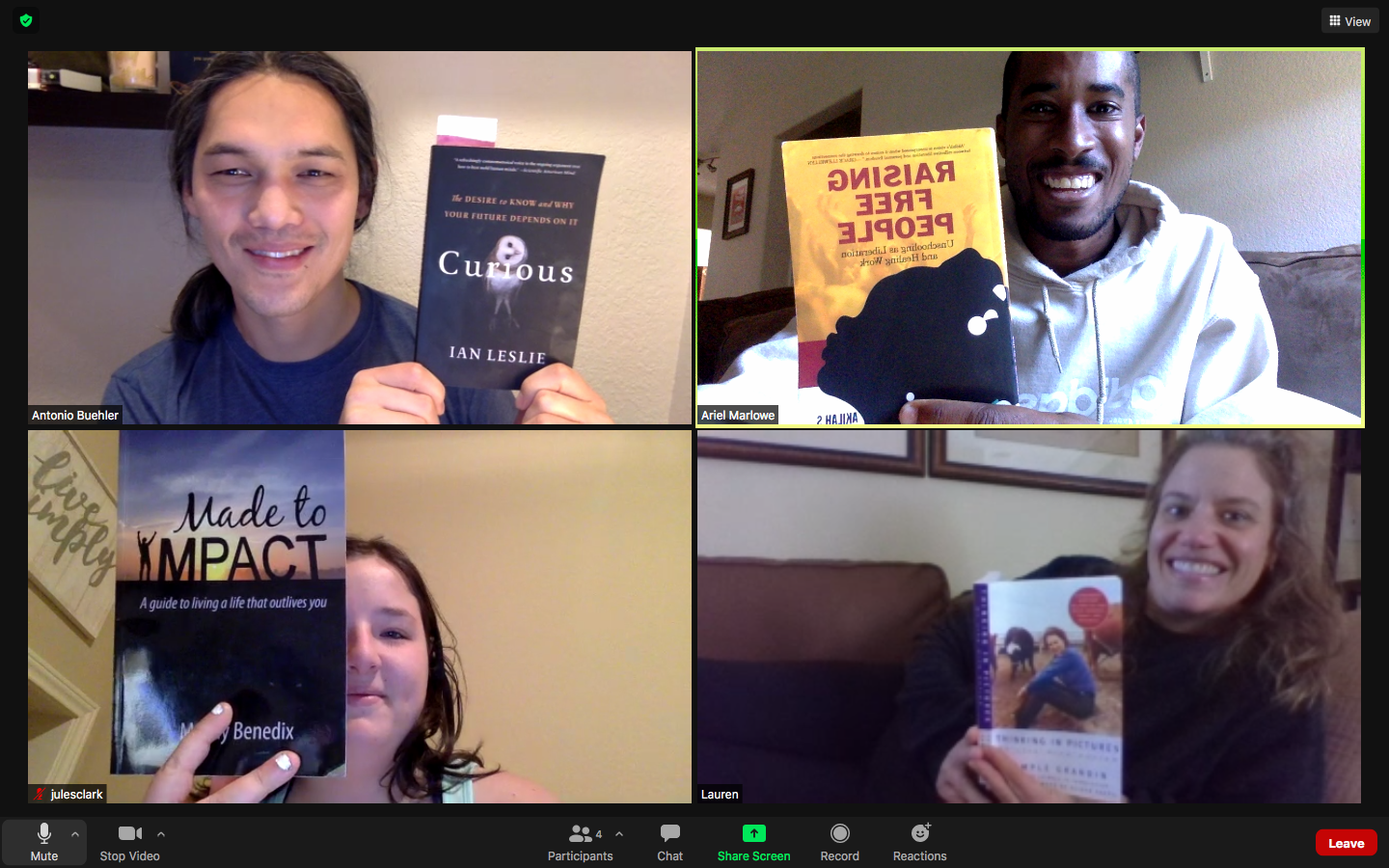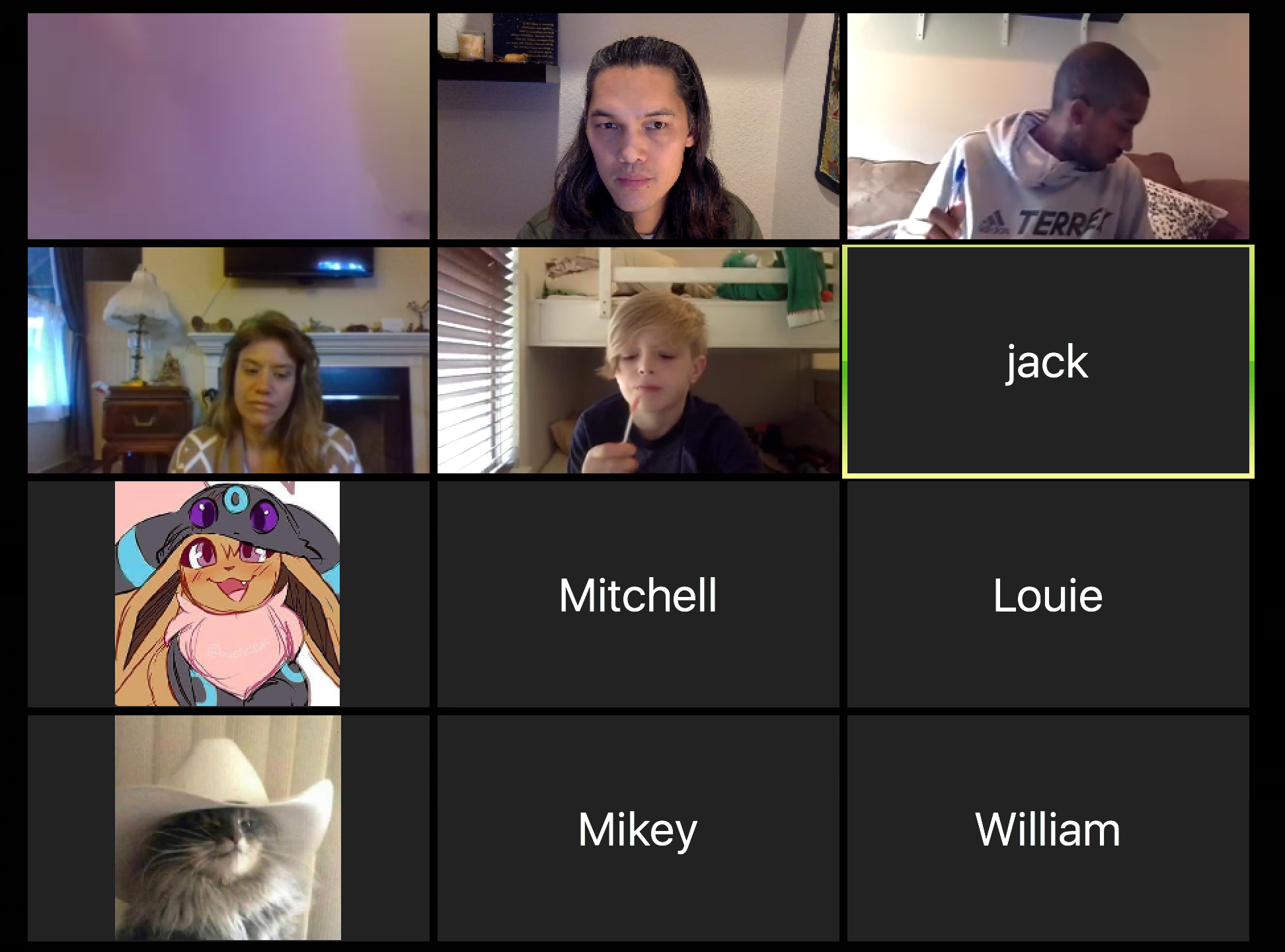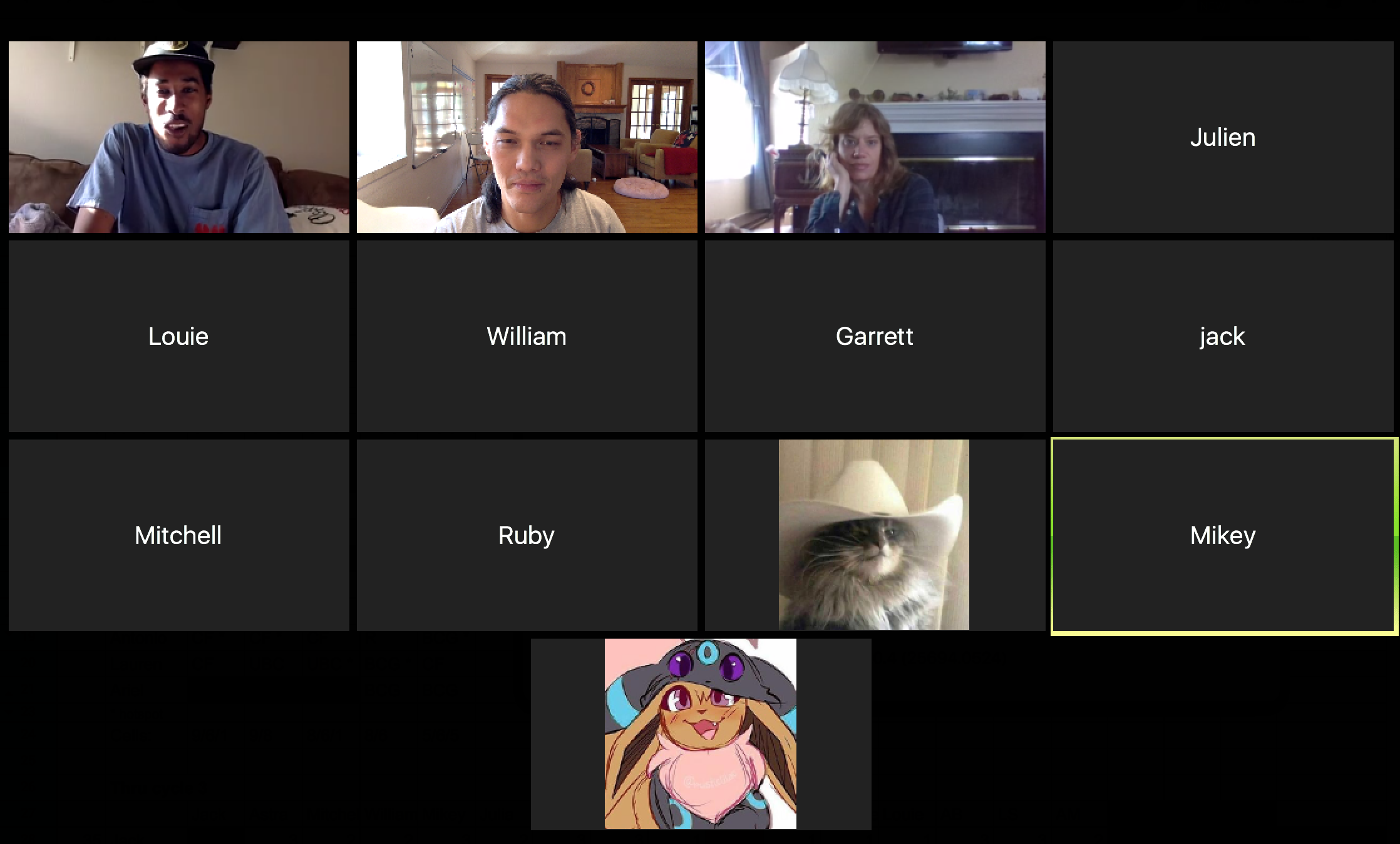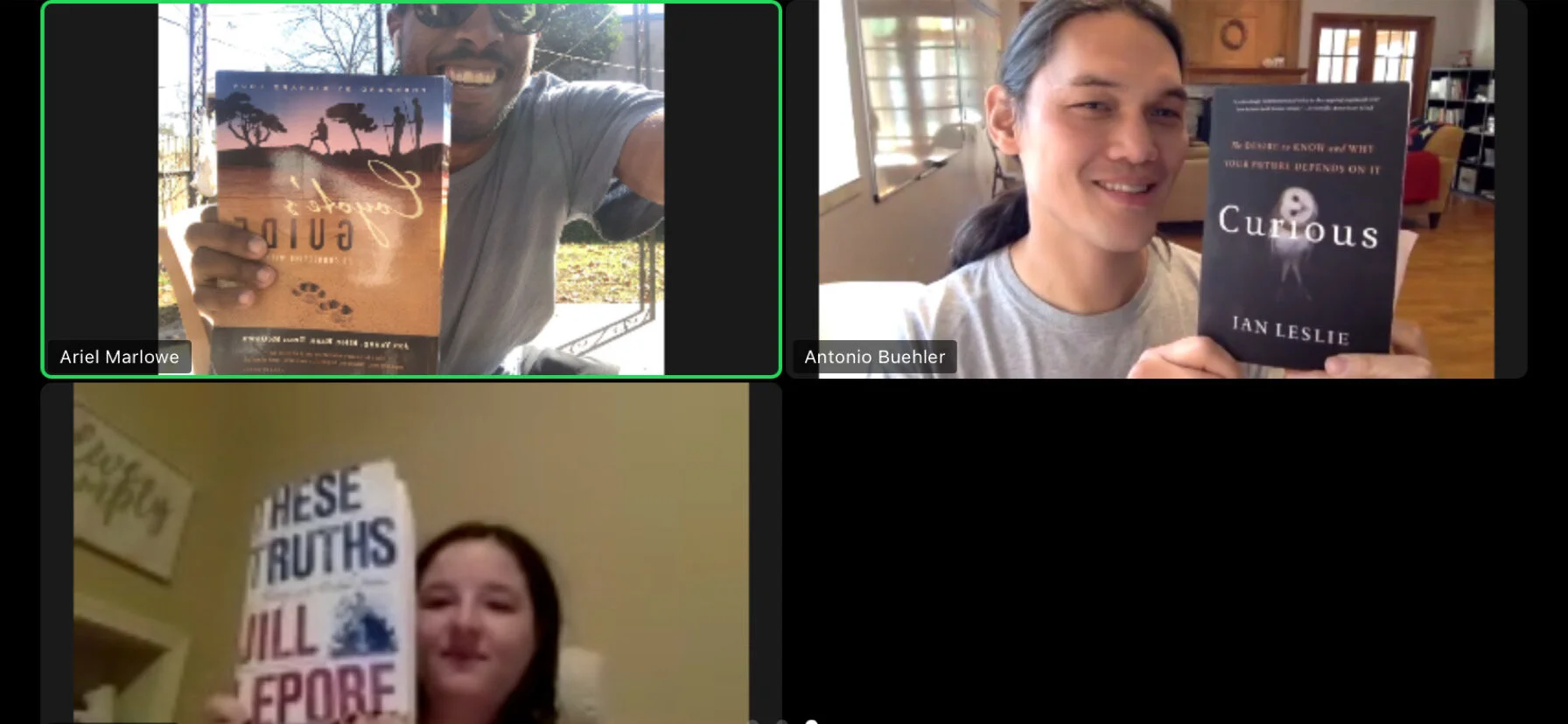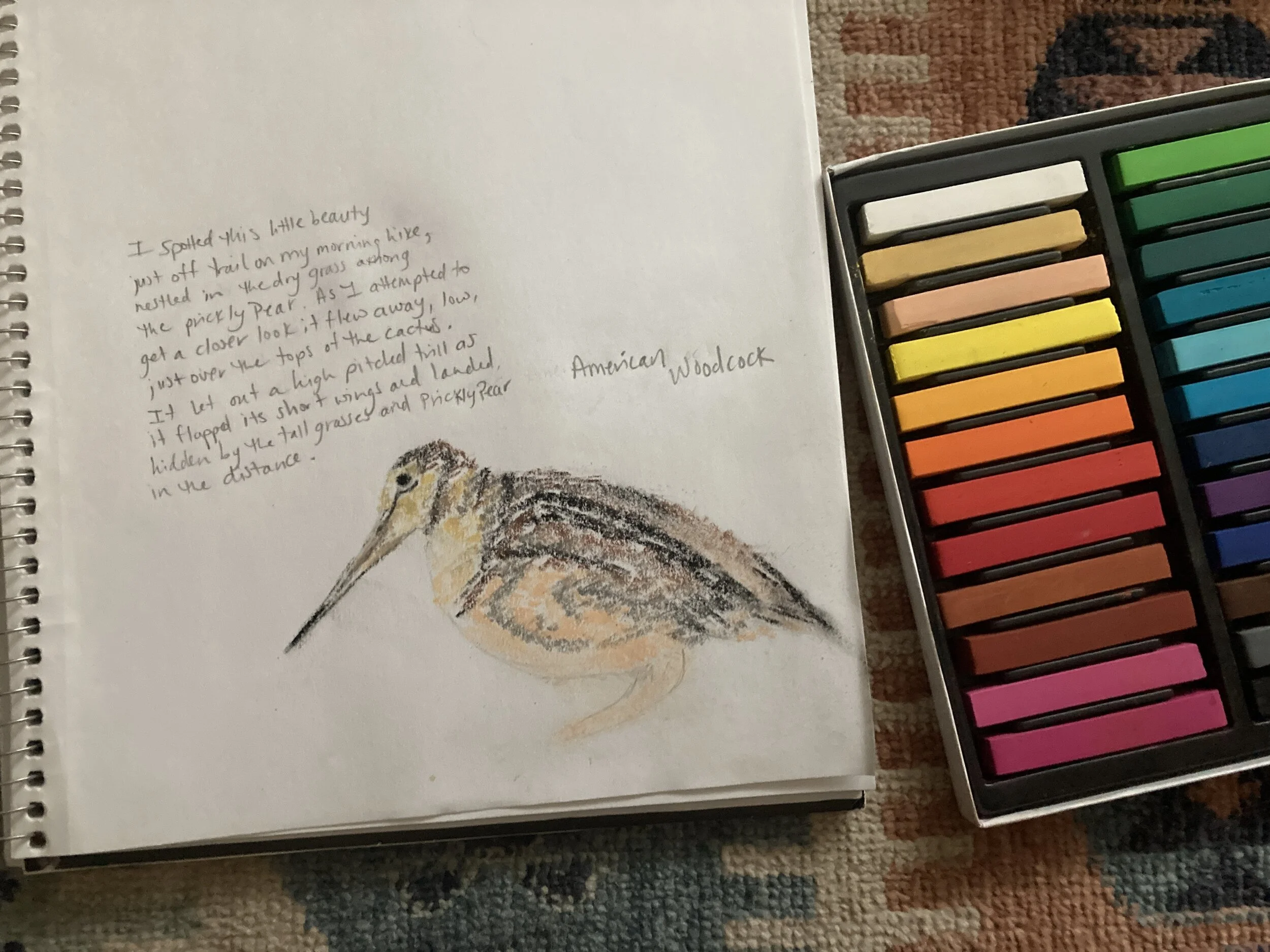Next up was Facilitator Lauren’s yoga offering which I dropped in on, as did an older Learner. In addition to the 7-minute workout I did earlier in the day, I had just finished a brisk walk before the yoga session, so I was feeling pretty good about continuing to move my body in healthy ways while staying remote. Yoga, as always for me, was a struggle as I was forced to move in ways that I am not used to. But it was much needed. After yoga, Facilitator Ariel hosted an online gaming offering while I had a support call with one of the Abrome families whose just enrolled Learner is not eager to participate in remote offerings or calls. He told me about how the Learner’s previous teacher in a nearby conventional school would ridicule students during remote learning, and how that may be contributing to his apprehension to jumping online with Abrome. We both agreed that the most important thing to do was to not force the Learner online, and to have plenty of patience. Trust is much more important than attendance.
I then had about 45 minutes until the afternoon meeting so I checked my phone and saw a bunch of notifications. Apparently an attempted coup was underway at the US Capitol Building in Washington, D.C., and of course I got sucked in. Having been privy to a good amount of information about the growing white nationalism movement in the US over the past six or seven years, in part because of my unfortunate run-ins with white supremacists who were helping to fuel the movement, I was left shaking my head at the scenes playing out that so many talking heads and West Point and Stanford people that I knew insisted “could never happen in America.”
I then noticed the language that the media and their guests were using during the attempted takeover of the Capitol. They were calling the Trump supporters, who were willing to use violence to subvert an election in order to keep Trump in power, “protesters.” Just protesters. My mind began to race as I tried to recall the much harsher language that was used by these same folks to describe the people who were protesting racial injustice and extrajudicial killings by the police in the streets this past summer, and ever since I really tuned into the struggle against the same eight years ago. Then I heard the media call them “anarchists.” Not once, but multiple times over. I was floored that these media outlets could see fascism playing out in front of their eyes yet they insisted on labeling it anarchism.
I had to pry myself away from what was happening for the afternoon roundup that Facilitator Lauren was leading. It was clear as people joined the meeting that some were quite aware of what was going on. Facilitator Lauren asked everyone if they were able to go outside during the day, and what they did if they happened to venture outdoors. Multiple Learners gave their response and then added that they had been watching the US Capitol Building get stormed. But there was not much of a desire to discuss it beyond that, and we were not going to force the conversation on the Learners. I made a note to myself that it would probably be a good idea to plan something for tomorrow for those who wanted to process it after more information came in that evening. After the meeting the Facilitators met briefly and called it a day.
After the Abrome day was finished I debated to what degree I needed to keep getting updates on what was happening. I considered that it might be best to unplug and check in later, so that I could take care of myself, or at least take care of work that needed to get done. It seemed that most all of the “protesters” were allowed to walk out of the Capitol Building after overrunning it, assaulting police officers, and ransacking offices. Many of the politicians who had been stoking the anger of those who overran the Capitol were suddenly denouncing what happened, and were now committing to support a peaceful transition of presidential power. So I figured that it probably was not going to escalate again in the coming hours and unplugged to get some work done.
But as I worked I kept analyzing what had happened in the back of my mind. There was a picture the media circulated of a Trump supporter walking through the Capitol with a lectern that he swiped. The media did not call him a looter. There was a video of a police officer fleeing from the mob. The media did not suggest that the officer should have opened fire because he “feared for his life.” There was video of members of the mob posing with police officers for photos as they left the Capitol. They reminded me of so many similar photos from protests all around the country this past year where Proud Boys and other white nationalists posed with cops after those same cops had assaulted people protesting police brutality and racial injustice. And I kept coming back to politicians and the media refusing to call the mob a bunch of fascists, and instead branding them anarchists.
They said that the attack was an attack on democracy and our way of life. That it was an attack on America. That it did not represent America.
And then I was taken back to the incessant demands of conservatives, moderates, and liberals alike that Colin Kaepernick and other athletes find more appropriate ways to protest, and then the great offense those same groups took to the notion of defunding the police. How they demanded that Black Lives Matter should spend their time lobbying politicians to end injustice in the most polite and non-disruptive ways possible, as opposed to being in the streets. How they could not endorse police killing people, but how they could no longer engage with the issue because a Target got looted. How they said they disapproved of white nationalists rallying in the streets, but how they were more disturbed by the antifascists who went in to protect the streets from being taken over by white nationalists.
I just reflected on the peculiar state of the society we live in. A society where fighting against injustice is seen as more disturbing than ignoring injustice. A society that criminalizes those with mental illness but makes excuses for the scores of millions of people who supported the delusions of a billionaire politician. A society that would rather fight for the freedom to put others at risk of contracting Covid-19 than committing to collective action to end the pandemic. The society we see before us is America.
And we won’t change America by trying to go back to the conditions that allowed us to get to where we are today. Instead, we need to recognize the humanity of all people, especially those who do not hold the reins of power. Especially those who have been most marginalized and oppressed. We need to recognize that oppressive institutions and social hierarchies exist, and we must work against them. We should not conveniently ignore them, and we should never support them just because they may not be directly harming us as individuals, or because they benefit us at the expense of others. Instead of working against those who are working for more liberatory and justice-oriented futures, we should invest our time and energy into doing the same. We should walk away from oppression and toward liberation.
And then I committed to going to sleep so that I could be present for the Abrome community the next day. I unplugged and was asleep by 9:30 p.m.
——
Cover photo: Elvert Barnes from Silver Spring MD, USA, CC BY-SA 2.0, via Wikimedia Commons


